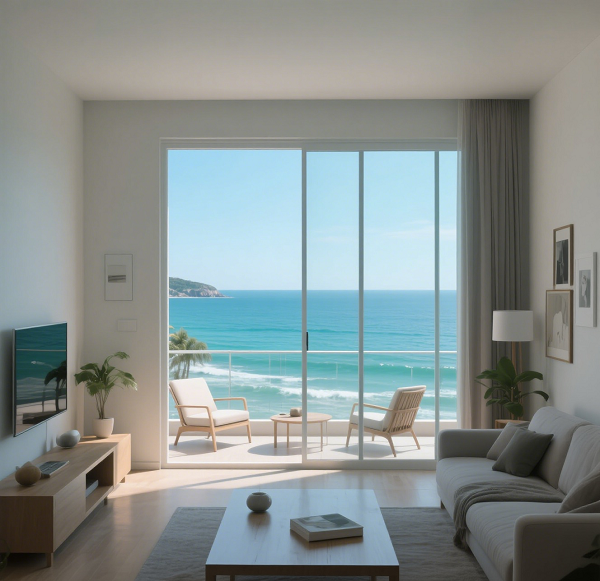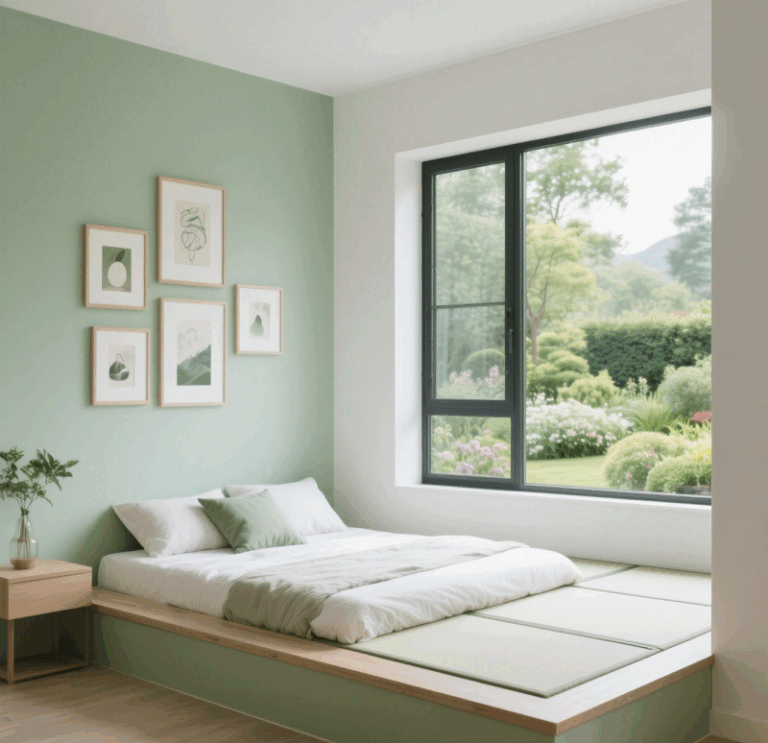Beautiful Plants For Your Interior

Designing Your Home with Feng Shui
Your home is more than just a place to live; it’s a space filled with energy that can affect your life. A “Feng Shui house plan” is about designing or arranging your home to make this energy flow well. It helps create a space that supports your health, happiness, and success.
What is a Feng Shui House Plan? More Than Just Looks
A Feng Shui house plan goes beyond just making your home look nice. It’s about how the layout and placement of rooms, doors, and furniture guide the flow of energy, or Chi. The goal is to make sure positive energy enters, moves smoothly, and stays to benefit everyone living there.
Why Consider a Feng Shui House Plan? Impact on Life
Thinking about Feng Shui when planning your home can have a big impact. A well-designed plan can help reduce stress, improve relationships, boost your career, and even support your health. It creates a feeling of calm and balance, turning your house into a supportive sanctuary.
Goal: A Guide to Creating a Supportive Home
This guide will walk you through the key ideas of a Feng Shui house plan. You’ll learn how to look at your home’s layout from an energy point of view and make choices that bring harmony and good fortune.
Basic Principles for a Good House Plan
Before looking at specific rooms, it’s important to understand the main Feng Shui ideas that apply to any house plan. These principles ensure good energy from the start.
Chi Flow: From Entry to Exit
The most important rule is ensuring good Chi flow. Chi should enter your home smoothly through the front door, move gently through the rooms, and not rush out too quickly. Think of it like water flowing through a garden – you want it to nourish every part, not flood or drain away.
Command Position: Key Areas
For important areas like your front door, main bedroom, and home office, strive for the “Command Position.” This means facing the entrance of the room without being directly in line with it, and having a solid wall behind you. This position gives you a sense of support, safety, and control over your life.
Yin and Yang Balance: Active vs. Calm Zones
A good house plan balances active areas (Yang) with calm areas (Yin). Living rooms and kitchens are usually more Yang, full of activity and light. Bedrooms and quiet study areas should be more Yin, promoting rest and peace. This balance helps everyone in the house feel comfortable and supported.
Five Elements Integration: In Design and Decor
The Five Elements (Wood, Fire, Earth, Metal, Water) should be balanced throughout your house plan. Each element relates to different colors, shapes, and materials. Using them thoughtfully in your design can enhance energy. For instance, too much Fire (reds, sharp shapes) can create tension, while too much Water (blues, wavy lines) might make things feel too fluid or uncertain. Aim for harmony.
Here’s a quick look at some common layout issues and simple Feng Shui fixes:
Table 1: Common House Plan Issues and Basic Feng Shui Fixes
| Common Issue in Plan | Feng Shui Impact | Basic Fix or Strategy |
|---|---|---|
| Front door directly faces back door | Chi rushes straight through, doesn’t stay. | Place a screen, large plant, or furniture to slow Chi flow. |
| Bedroom over a garage or busy area | Lack of support, restless energy. | Use a thick rug, solid bed frame; avoid metal bed frames. |
| Bathroom in the center of the house | Energy drain in the heart of the home. | Keep door closed, lid down, very clean. Use plants to absorb negative energy. |
| Long, straight hallway | Chi moves too fast, creates “poison arrow.” | Place rugs, artwork, or lighting along sides to slow Chi. |
| Stairs facing front door | Energy (and money) rushes out. | Place a barrier (plant, screen) at the bottom of stairs, or a mirror *beside* the door (not facing out). |
Analyzing Your House Plan with the Bagua Map
The Bagua Map is a powerful tool to understand the different energy areas in your home. By laying this map over your floor plan, you can see how each part of your house relates to different aspects of your life.
Understanding the Bagua Map: Nine Life Areas
The Bagua divides any space into nine sections, each corresponding to a specific life area: Career, Knowledge, Family/Health, Wealth, Fame, Relationships, Children/Creativity, Helpful People/Travel, and the Center (overall well-being). Knowing these areas helps you target improvements.
Overlaying the Bagua on Your Floor Plan: The Mouth of Chi Method
To use the Bagua, simply imagine a grid laid over your house plan. The side of the grid where your main front door is located corresponds to the Career, Knowledge, and Helpful People areas. This is often called the “Mouth of Chi” method. Aligning the Bagua this way shows you where each life area falls in your home.
Identifying Missing or Extended Areas
Sometimes, a house plan might have a “missing area” (a part of the Bagua grid falls outside the house’s walls) or an “extended area” (a part sticks out too far). Missing areas can mean challenges in that life aspect, while extended areas might mean that life area is very important. Feng Shui offers ways to fix imbalances in these areas.
Here’s a simple guide to the Bagua areas and what they mean:
Table 2: Bagua Map Areas and Their Meanings
| Bagua Area (Direction from Entrance) | Life Aspect Represented | Related Element |
|---|---|---|
| Center | Health, overall well-being, unity | Earth |
| Front-Center (Career) | Career path, life journey | Water |
| Front-Left (Knowledge) | Wisdom, self-cultivation, learning | Earth |
| Front-Right (Helpful People/Travel) | Mentors, support, travel, divine help | Metal |
| Middle-Left (Family/Health) | Family harmony, physical health, community | Wood |
| Middle-Right (Children/Creativity) | Children, creative projects, future | Metal |
| Back-Left (Wealth/Prosperity) | Financial abundance, prosperity, blessings | Wood |
| Back-Center (Fame/Reputation) | Recognition, reputation, social standing | Fire |
| Back-Right (Relationships/Love) | Partnerships, love, marriage, connections | Earth |
Room-by-Room Feng Shui Layout
Each room in your house plan has a special role. Arranging them according to Feng Shui helps optimize their energy for their specific purpose.
Main Entrance: Welcoming Energy
This is the “mouth of Chi.” Ensure it’s clean, bright, and free of clutter. A clear, inviting path to your front door helps good energy and opportunities enter your home.
Living Room: Gathering and Harmony
The living room is for social interaction and relaxation. Arrange furniture to encourage conversation and comfort. Avoid placing a large sofa with its back directly to the main entrance. Good lighting and comfortable seating promote harmony.
Kitchen: Health and Wealth
The kitchen represents health and prosperity. Keep it clean and organized. The stove, symbolizing wealth, should be in good working order and regularly used. Avoid placing the stove directly opposite the sink or refrigerator, as fire and water elements can clash.
Bedrooms: Rest and Relationships
Bedrooms are for rest, healing, and relationships. The bed should be in the command position (solid wall behind, clear view of the door, not directly in line). Avoid mirrors facing the bed directly. Keep electronics to a minimum and use calming colors for walls and decor.
Bathrooms/Toilets: Energy Drains
Bathrooms are natural energy drains because water flows out. Always keep the toilet lid down and bathroom doors closed. Ensure they are clean and well-maintained. If a bathroom is in an important Bagua area (like Wealth or Health), consider using a small plant inside to absorb negative energy, or a mirror on the *outside* of the door to reflect energy back into the room.
Stairs/Hallways: Chi Movement
Stairs can make Chi move too quickly up or down. Hallways can become “poison arrows” if they are too long and straight. Soften these areas with rugs, artwork, or plants to slow down and guide the Chi gently. Avoid having stairs directly facing the front door, as it can cause energy to rush out.
Common House Plan Challenges and Fixes
Many homes have common layout issues that can affect Feng Shui. Knowing these challenges and their fixes can help you improve your home’s energy.
Long, Straight Hallways: Fast Chi
If Chi moves too fast down a long hallway, it can be draining. * **Fix:** Place rugs, artwork, or lighting fixtures along the sides of the hallway to slow down and visually break up the straight path.
Doors Facing Each Other: Chi Rushing
When two doors are directly opposite each other, Chi can rush in and out too quickly. * **Fix:** Place a large plant or a screen between the doors to create a gentle curve in the Chi’s path.
Stairs Facing the Front Door: Energy Escaping
If stairs directly face the front door, good energy (and potentially money) can rush out of the house. * **Fix:** Place a strong barrier, like a large plant or a decorative screen, at the bottom of the stairs. You can also place a mirror *beside* the front door (not facing out) to reflect energy back into the home.
Bathrooms in Important Bagua Areas: Energy Drains
If a bathroom falls into a key Bagua area like Wealth or Health, its draining energy can weaken that life aspect. * **Fix:** Keep the bathroom extremely clean, ensure the toilet lid is always down, and the door is closed. Place a robust plant inside the bathroom to absorb negative energy, or consider a mirror on the *outside* of the bathroom door to symbolically push energy back into the main room.
Bedrooms Over Garages or Busy Areas: Restless Energy
Sleeping directly above a noisy or active area can lead to restless sleep or feeling unsupported. * **Fix:** Use a solid, heavy bed frame and a thick rug to create a stronger sense of support. Avoid metal bed frames, which can amplify energy. Consider adding soundproofing materials if noise is an issue.
Conclusion: Creating Your Harmonious Home
Your house plan is like a living energy map. By applying Feng Shui principles, you can design or improve your home to better support every aspect of your life.
House Plan as a Living Energy Map
Think of your home as a dynamic system where energy constantly moves. A well-considered Feng Shui house plan allows you to work with these energies, turning your living space into a powerful tool for well-being and success.
Benefits of a Well-Designed Feng Shui Home
Living in a home designed with good Feng Shui can lead to many benefits: improved health, stronger relationships, better focus, increased prosperity, and an overall sense of peace and happiness. It’s about creating an environment that nurtures you.
Start with the Big Picture, Then Details
When applying Feng Shui, start with the overall house plan and major elements like the front door and main rooms. Once the big picture is harmonized, you can move to smaller details like furniture placement and decor within each room.
Flexibility and Personal Comfort
Remember, Feng Shui rules are guides, not rigid laws. While following them is beneficial, your personal comfort and intuition are also very important. A home that feels good to you is already on the right path. Be flexible and make adjustments that genuinely improve your living experience.


